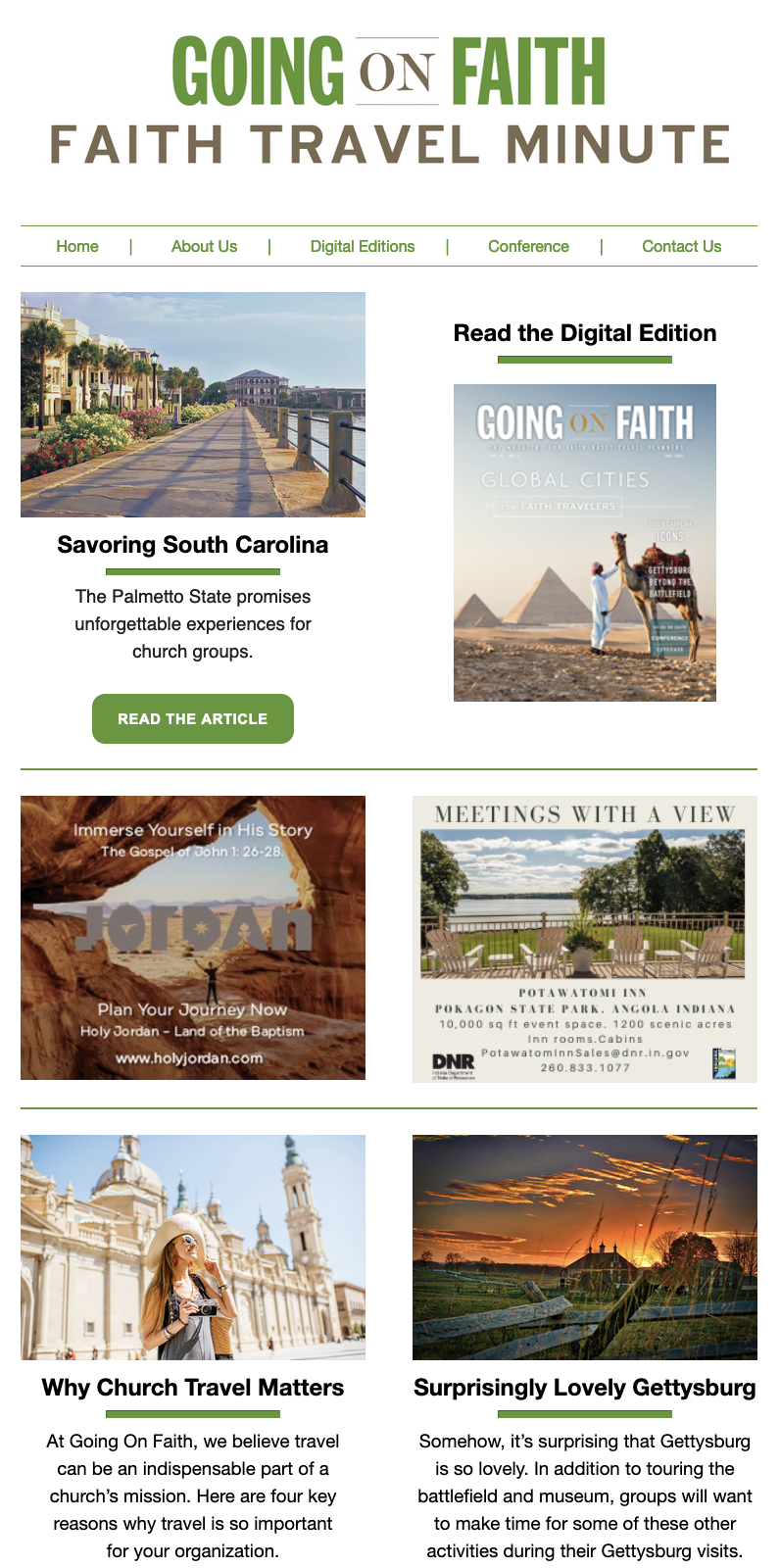“Culture eats strategy for breakfast.”
This saying has been popular in leadership circles for the past 20 years, and nobody is sure exactly where it originated. But successful leaders around the world agree the fundamental idea is solid. No matter how great an organization’s products, strategies or assets are, its long-term success will be determined by the health of its culture.
Culture can be ephemeral: It’s essential to any group of people but very difficult to measure. Culture develops over time through hundreds or thousands of small personal interactions. And whenever someone encounters an organization for the first time, the culture of the group will determine how likely the visitor is to return.
Like any other human organization, your church has a culture, and so does your travel group. And if you play a leadership role in either of those entities, you’re responsible for the health of that culture. If the culture is strong and vibrant, the organization can’t help but succeed. But if there are problems in the culture, you can expect stormy seas ahead.
Since group travel is such a people-oriented business, it’s especially important for you to invest in a positive culture. Here are five questions to help you evaluate the culture of your travel ministry.
1) Are we fun?
Travel is supposed to be enjoyable. But if you travel with people who don’t know how to have fun, the trip isn’t going to be a good experience. A healthy travel group culture will have lots of laughter and great shared memories. It’s OK to visit important places and talk about serious topics, but make sure to include plenty of lighthearted moments, too.
2) Are we adventurous?
A sense of wonder and curiosity should pervade everything a travel group does. Yes, there may be destinations that your travelers enjoy returning to again and again. But if you never try anything new, your culture is going to stagnate. As a leader, you can engender a healthy, adventurous culture by continually encouraging your followers to go beyond their comfort zones.
3) Are we inclusive?
The mission of the church is inclusive by nature: We’re called to reach as many people as we can and make the biggest possible impact in our communities. But sometimes church groups can become so cliquish that outsiders feel they don’t belong. Even if your travel ministry is focused on a specific age or demographic, make sure you’re reaching out to people who aren’t part of your group and making them feel welcome.
4) Are we honest?
One of the most telling indicators of an organization’s cultural health is how honest people are with each other. Do people in your group feel like they can be themselves around you? Do they talk honestly about the struggles and triumphs they’re experiencing in life? Do they find your community supportive, or do they feel like they have to keep up appearances to fit in? In a healthy culture, everyone is free to be honest.
5) Are we growing?
Healthy things grow. When people see a group with a vibrant culture, they naturally want to get involved. If your travel group — or your church — isn’t seeing consistent growth, that’s a good indication that your culture needs some attention. Strengthen your culture, though, and growth will always follow.










